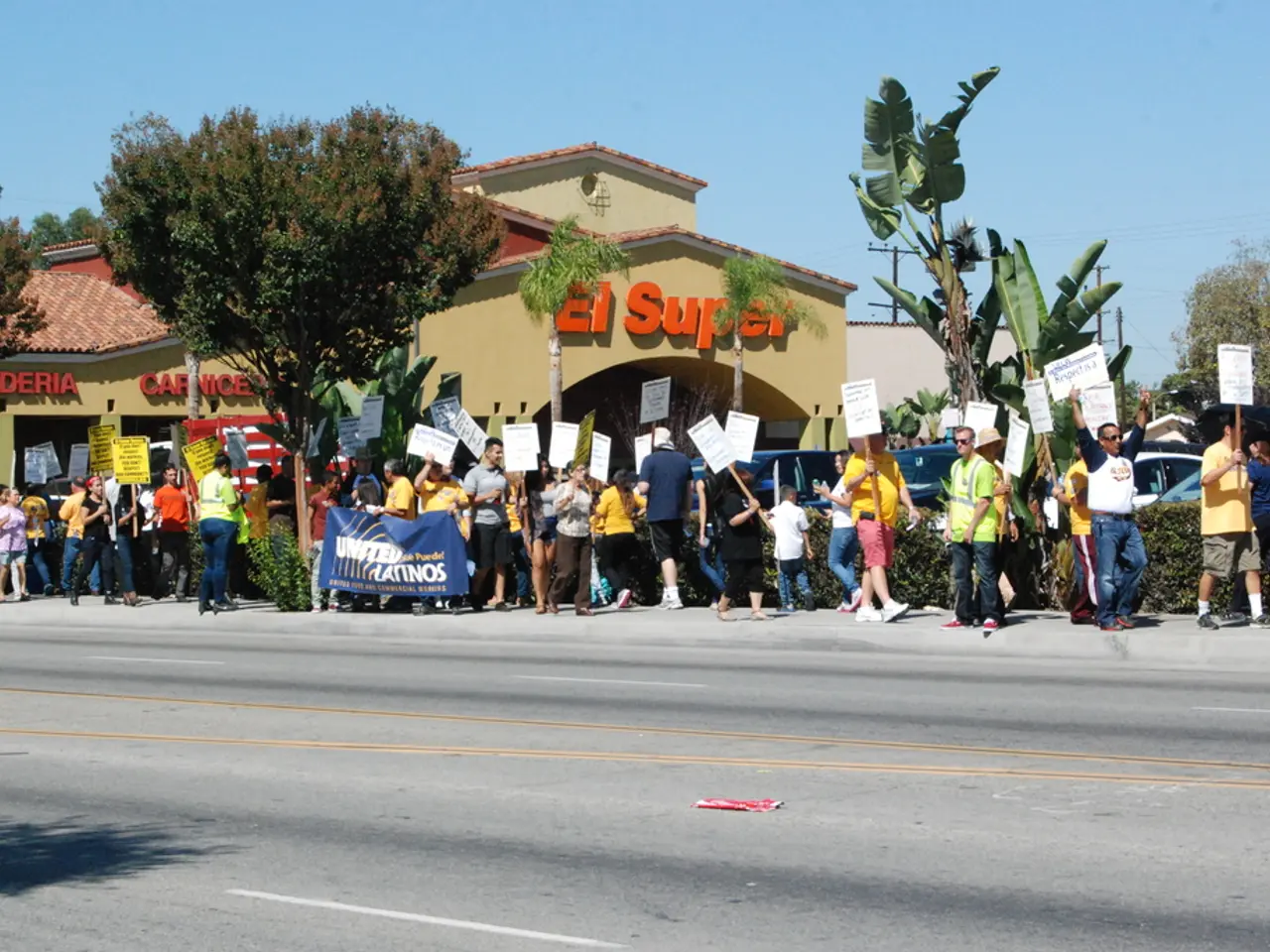Electoral showdown: Insights into the upcoming 2024 local elections, red vs blue
Prepare for a significant political event as local elections take place across England and Wales on Thursday, 2 May 2024. This year's elections will see various council seats contested, including mayoral elections in numerous regions.
Key Details
The elections will encompass a wide range of council seats, particularly in areas like Cambridgeshire, Northamptonshire, and Hertfordshire, as well as mayoral elections such as the new Mayor of Cambridgeshire and Peterborough. The exact number of seats up for grabs in England has been recorded as the smallest in any local electoral cycle, totalling 2,636.
Participating Parties
The elections will involve the major parties — Labour, Conservative, and Liberal Democrats — as well as minor and emerging parties such as Reform UK. Independents and local party candidates are also significant, especially in parish and town council elections. The rise of Reform UK and Liberal Democrats is noted in several key areas, making them important factors to watch.
Predictions and Context
These local elections are considered the first major ballot box test for the government following the 2024 general election, in which Labour won a large majority. The political landscape is shifting, with increased voter dissatisfaction toward both major parties and rising support for smaller or new parties like Reform and Liberal Democrats. This suggests potential gains for these smaller parties, especially where a four-way contest may occur, as in the Cambridgeshire mayoral election.
Voter Dynamics
Party-affiliated candidates tend to increase contestation and voter choice in local elections. More than 70% of parish/town council polls now feature party candidates, leading to higher participation.
Regional Devolution Factor
Areas undergoing mayoral devolution (22 areas covering 60% of the English population) will see their local elections influenced by this governance change. This includes substantial parts of northern England, which may add complexity to local electoral outcomes.
Timeline of Results
Hartlepool, situated in the North East, will follow at 1.30am, and Rochford, Sunderland, Gosport, and Newcastle-upon-Tyne will announce their results at the same time. At lunchtime on Friday, 48 councils will unveil their results, with four mayors and 24 PCCs. By 6-7am, Lincoln, Southampton, Tameside, and Winchester will have announced their results. On Saturday, Liverpool, Manchester, West Midlands, West Yorkshire, South Yorkshire, and London will declare who will be their next mayors. Gloucester will be the last council to announce their results at 11pm on Friday.
Notably, the first council to announce results will be Broxbourne, located in Hertfordshire, around half past midnight on Friday 3 May. Three of these mayoral posts in the North East, East Midlands, and York and North Yorkshire are newly created and will be holding their inaugural election.
Challenges for the Major Parties
Rishi Sunak's party is currently trailing 20 points behind Labour in the polls. The Conservatives have suffered several damaging by-election defeats involving massive swings. However, during the period when the successful vaccine rollout was underway, Boris Johnson's Conservatives had their best local election performance since 2008.
The Importance of These Elections
The local elections of 2024 are considered the most anticipated due to the delay caused by the Covid-19 pandemic. In the past three years, two Prime Ministers have taken over from Johnson, the country has faced a cost-of-living crisis, and controversial new legislations have been passed regarding immigration and NHS wait times. These elections will serve as an early indicator of public sentiment toward the ruling Labour government and the evolving political landscape at the local level.
Sadiq Khan is running for a third term as the Mayor of London. Police and crime commissioners (PCCs) are also being elected across England and Wales, with 33 in England and four in Wales. There will also be elections to the London Assembly with 25 seats available.
PCCs are vital to ensuring that local police officers meet the needs of communities. The public will also be casting their verdict on 10 metro mayors across the country. To vote, one must be aged 18 or over and registered at an address in the area they wish to vote in. A valid form of photographic ID is required when voting, and the accepted forms can be found online.
The local elections in England and Wales are scheduled to start on Thursday, 2 May 2024.
In the local elections scheduled for 2 May 2024, various parties, including the Labour, Conservative, Liberal Democrats, Reform UK, independents, and local party candidates, will contest council seats across England and Wales, particularly in areas like Cambridgeshire, Northamptonshire, and Hertfordshire, as well as mayoral elections. The evolving political landscape, marked by increased voter dissatisfaction toward the major parties and rising support for smaller parties, suggests potential gains for parties like Reform UK and Liberal Democrats in elections like the new Mayor of Cambridgeshire and Peterborough. These elections are significant, as they represent the most anticipated local elections in the past three years, providing an early indicator of public sentiment toward the ruling Labour government and the shifting political landscape at the local level. Community engagement is encouraged to ensure that local police officers meet the needs of communities as candidates for Police and Crime Commissioners (PCCs) are elected across England and Wales, along with 10 metro mayors and members of the London Assembly.








